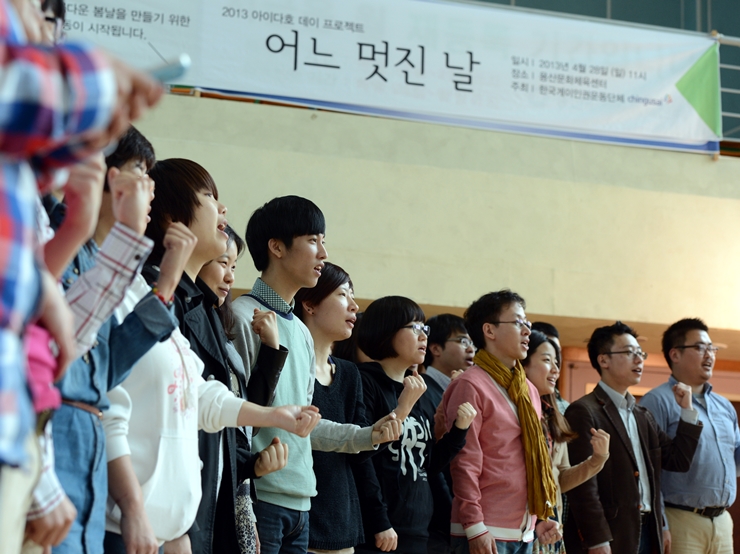

A few weeks ago I was invited to watch the taping of a video for the International Day Against Homophobia and Transphobia (IDAHO) in the second floor of a gym in Seoul. I was greeted with applause.
"I don't understand," I said to Lee Jong-geol, the general director of the LGBT group Chingusai ("Between Friends"), who had introduced me to the participants as an American writing about the LGBT movement in Korea. "I haven't done anything. Why are they clapping?"
"We want as many people to see this video as possible," Lee confided. "You can help with that." The South Korean LGBT movement generally has trouble gaining recognition by Western media due to language barriers.
The same week that the video was shot, Rep. Min Hong-chul of the left-leaning Democratic United Party (DUP) had been pushing strongly to codify language banning gays and lesbians from serving in the South Korean military. The bill would have been the first South Korean law explicitly mentioning homosexuality in the military. Chingusai and another LGBT group, DongInRyun ("Solidarity for LGBT Human Rights of South Korea"), led a petition drive to keep the bill from going forward.
As more explicit pro- and anti-LGBT legislation is introduced and debated in South Korea, more and more Koreans are stepping forward in support of LGBT rights. Over 100 Koreans (some gay, most straight) were involved in production. The song is a Korean version of "You Make Me Proud," originally introduced by the Sydney Gay and Lesbian Choir for IDAHO in 2012.
One of the lesbian singers, Ziihiion, joined the video after hearing about violent opposition to the Anti-Discrimination Act currently making the rounds in South Korea's national assembly.
"All people, all loves, all relationships must be respected equally," she said.
As you watch the video, pay attention to the flower, a symbol associated with Chingusai, as it travels from singer to flower pot to innocuous placement in a busy Seoul street, planting the beginnings of a real movement.
WATCH: